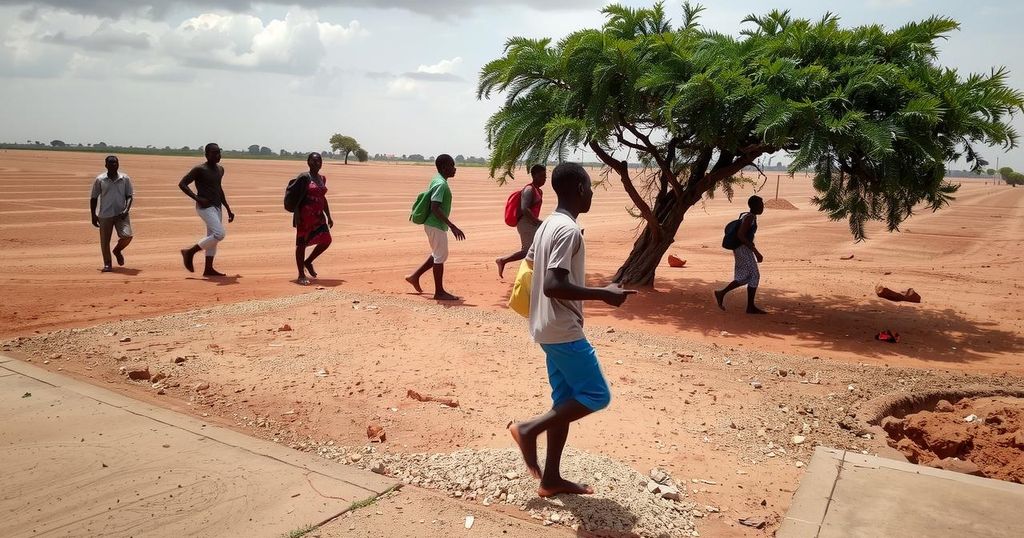Sudan is experiencing a catastrophic humanitarian crisis fueled by ongoing conflict and climate change. Over 20,000 people have died, and millions have been displaced, facing severe flooding. A call for climate-sensitive humanitarian aid has emerged, as floods continue to devastate refugee camps and exacerbate vulnerabilities. It is crucial to address both immediate needs and long-term climate challenges to effectively support those affected.
In Sudan, a nation embroiled in conflict, citizens are grappling with the devastating effects of ongoing warfare coupled with the severe repercussions of climate change. As the crisis approaches its two-year milestone, populations are displaced by violence and extreme weather events, particularly flooding. The hostilities between the Sudanese Army and the paramilitary Rapid Support Forces have not only claimed over 20,000 lives but also displaced millions, exacerbating the situation for those already vulnerable due to climate-related challenges.
Currently, more than 12 million individuals find themselves as refugees or internally displaced persons (IDPs), with significant concentrations in areas ravaged by floods. Reports indicate that the flooded regions encompass an area surpassing that of Germany, marking a dire humanitarian situation. Observers emphasize the urgent need for comprehensive humanitarian assistance that incorporates the realities of climate change, arguing that such considerations are now essential rather than optional.
As highlighted by activists, “We must consider climate change when planning humanitarian interventions. Making aid climate-sensitive is no longer a privilege—it’s essential. Otherwise, efforts will be washed away by the floods.” Indeed, Sudan remains highly susceptible to climate upheaval, characterized by frequent droughts and erratic rainfall patterns, according to the United Nations. Consequently, millions are in immediate need of assistance, and there is a pressing call for solutions that simultaneously address both humanitarian needs and long-term climate resilience strategies.
Sudan is currently facing an unprecedented crisis that intertwines the effects of armed conflict and climate change. With a history of instability, the ongoing fighting has drastically worsened the living conditions of millions. Particularly affected are the IDPs and refugees, many of whom are situated in regions experiencing severe flooding, a consequence of unpredictable weather patterns made worse by climate change. As such, the significance of integrating climate considerations into humanitarian efforts has become increasingly apparent, underscoring the need for adaptable and sustainable interventions.
In summary, Sudan’s dual crises of conflict and climate change have created a humanitarian emergency of staggering proportions. The interplay between these factors has resulted in widespread displacement and dire living conditions for millions. Urgent action is required, not only to provide immediate assistance but also to ensure that such interventions are sensitive to the realities of climate change, enabling communities to better withstand future crises.
Original Source: shiawaves.com






